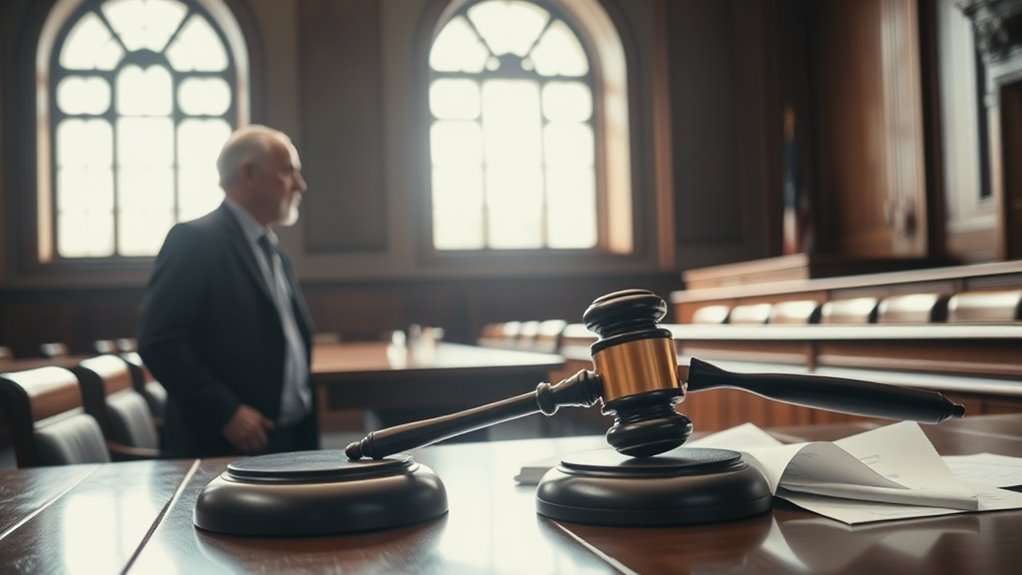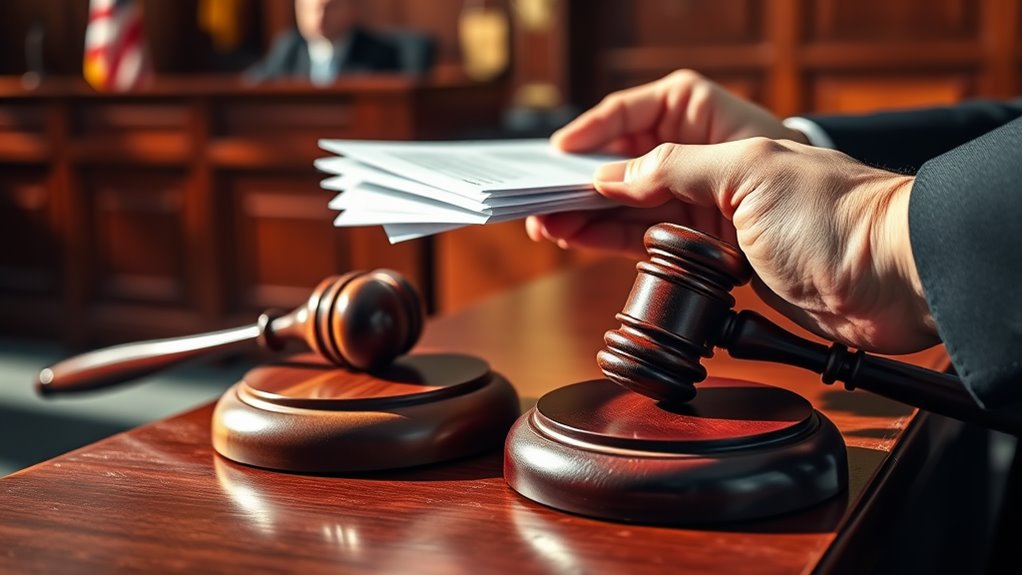
When you face a citation, understanding your legal rights is essential for traversing the process effectively. You have the right to know the charges against you, seek legal representation, and contest the citation in court. Each of these rights plays an important role in shaping your defense strategy. Consider how these rights can influence the outcome of your case, and what steps you should take next to guarantee your voice is heard.
Key Takeaways
- You have the right to know the specific charges against you, ensuring clarity and avoiding confusion.
- Legal representation is your right, helping navigate court procedures and build a strong defense.
- You are entitled to contest the citation in court, either through appearance or written declaration.
- The right to present evidence supports your defense, allowing you to introduce relevant information and witnesses.
- A speedy trial is your right, ensuring timely justice and preventing undue delays in legal proceedings.
The Right to Know the Charges

When facing a citation, understanding your right to know the charges is essential for mounting an effective defense. The Sixth Amendment guarantees this right, ensuring you're aware of the nature and cause of accusations. It's been in place since 1791 to promote fairness in legal proceedings. Additionally, hiring the right traffic attorney can significantly bolster your defense strategy.
While the law doesn't demand minute details, charges must be clear enough to avoid confusion, as established in _Rosen v. United States_. Unclear charges can lead to wrongful convictions or successful appeals, as seen in _Cole v. Arkansas_. Furthermore, the right to be informed about charges is crucial for ensuring defendants can adequately defend against specific charges.
Consequently, knowing your charges allows you to prepare a robust defense strategy, helping to prevent judicial overreach and protect your rights within the legal system. Clarity in charges is fundamental to due process.
The Right to Legal Representation
Understanding your right to know the charges is only the first step in effectively addressing a citation.
Next, consider the essential benefit of legal representation. An attorney can markedly reduce the impact of your citation by:
- Navigating the System: They understand local regulations and court procedures, ensuring efficient handling of your case.
- Gathering Evidence: Attorneys can uncover and analyze evidence that you might miss, strengthening your defense.
- Saving Time: They manage paperwork and court appearances on your behalf, allowing you to focus on your life.
The Right to a Speedy Trial
Although legal proceedings can often feel prolonged and complicated, the right to a speedy trial is a fundamental safeguard designed to prevent undue delays in the justice system.
Guaranteed by the Sixth Amendment, this right applies to all criminal cases, ensuring you're not unjustly held while awaiting trial.
The federal Speedy Trial Act mandates that formal charges must be filed within 30 days of your arrest. Each state has its own rules, with some requiring prosecutors to be ready for trial within a specified timeframe.
The federal Speedy Trial Act requires formal charges to be filed within 30 days of arrest, with state-specific timelines varying.
If your right is violated, such as in excessive delays without just cause, you might see charges dismissed with prejudice, preventing retrial and emphasizing the importance of timely justice.
The Right to Present Evidence

The right to present evidence is a significant aspect of a fair trial, as it empowers you to build a defense by introducing relevant information and witnesses. This right, protected by the Sixth Amendment, allows you to present various types of evidence, including:
- Testimonial Evidence: Oral or written statements from witnesses that support your case.
- Documentary Evidence: Papers or digital files that substantiate your arguments.
- Demonstrative Evidence: Visual aids that help illustrate key points.
To guarantee admissibility, your evidence must be relevant, trustworthy, and comply with legal standards.
The Right to Cross-Examine
Presenting evidence is only part of establishing a solid defense; equally important is your right to cross-examine witnesses. The Sixth Amendment guarantees this essential right in criminal cases, ensuring you can confront adverse witnesses directly.
Administrative Procedure Acts in states like Minnesota further support your ability to cross-examine in contested cases. This process includes questioning witnesses and considering deposition testimonies when in-person appearances aren't possible.
Courts uphold this fundamental right, emphasizing the necessity of fair hearings. Without cross-examination, unreliable testimony may skew outcomes.
Understanding the procedures and limitations surrounding cross-examination empowers you to challenge evidence effectively, thereby enhancing your defense strategy and safeguarding your rights throughout the legal process.
Pleading Options: Not Guilty vs. Guilty
When you receive a citation, you face a critical decision: plead guilty or not guilty. Each option carries distinct implications:
- Pleading Guilty: You admit the violation and typically pay the standard fine, possibly leading to points on your driving record.
- Pleading Not Guilty: You contest the citation, which usually involves a trial. If found guilty, you might still face fines, but there's a chance of acquittal.
- Legal Counsel: Hiring a lawyer can be advantageous, especially in complex cases or if you're busy.
Consider your circumstances carefully—your plea can greatly impact your financial and legal standing.
Make sure you understand the consequences before deciding how to proceed.
The Right to Contest Citations

Contesting a citation is your right, and understanding how to navigate the legal process can greatly influence the outcome.
Contesting a citation is your right; navigating the legal process can significantly impact your outcome.
You typically must appear in court or submit a written declaration, often requiring bail to secure a trial date. Courts provide necessary forms and guidance, making it easier for you to contest effectively.
You can have legal representation during trials, which may help strengthen your case. Different trial options exist, such as court trials or trials by written declaration, each with specific requirements and deadlines.
Be aware of your jurisdiction's rules, as they can vary considerably. Make sure you meet all eligibility criteria and submit necessary documentation to avoid penalties.
Exercise your right wisely to achieve the best possible outcome.
Conclusion
Understanding your legal rights when facing a citation is essential for maneuvering the system effectively. For instance, if you were cited for a traffic violation, knowing your right to contest the citation can empower you to gather evidence, like dashcam footage, to support your case. By leveraging these rights—like the ability to cross-examine witnesses—you enhance your chances of a favorable outcome. Stay informed and proactive; your rights are your best defense in court.


